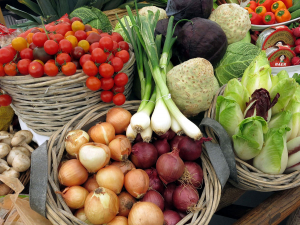Gene Technology Bill: Impact on Winegrowers and New Zealand Winegrowers' Response
Genetic modification has long been a topic of hot debate.
 The NSW Government says it will lift its moratorium on genetically modified food crops from 1 July 2021.
The NSW Government says it will lift its moratorium on genetically modified food crops from 1 July 2021.
The NSW Government has announced that a moratorium on genetically modified (GM) food crops will be lifted in the state from 1 July 2021, ending an 18-year ban.
The lifting of the ban on genetically modified crops will have immediate application for canola.
Director of the Sydney Institute of Agriculture, Professor Alex McBratney, said there are pros and cons to the decision to lift the ban on GM crops in NSW, which will align now with the rest of Australia.
“If we use genetic technology to improve the nutritional profile of crops, such as vitamin levels in rice, or by making crops more water-efficient, that will be a definite positive. We’ve already seen a dramatic drop in insecticide use in GM cotton grown in Australia.
“However, crops modified to be ‘Round-Up ready’ can encourage overuse of herbicides when we should be looking at alternatives, such as camera spraying and other precision agriculture methods.”
McBratney says it is important to remember that the only commercialisation of GM crops has been for canola and cotton.
“Genetically modified wheat hasn’t been commercialised anywhere in the world so far, so that offers a big challenge for our researchers.”
He says there are some markets, largely in Europe, that don’t want GM products – so it will be important to label GM products appropriately.
Meanwhile, Sydney Institute of Agriculture’s dean of science and soil scientist Professor Iain Young says the lifting of the moratorium on GM crops offers a host of opportunities, at a time when we have to secure our food production. “The lessons from Europe show us we must be proactive in dealing with public concerns and potential misconceptions.”
Mating wrapped up last month at the across-breed Beef Progeny Test on Pāmu’s Kepler Farm in Manapouri.
Libby Judson is a keeper of memories from an age gone by. Tim Fulton tells her story.
A New Zealand-first native tree study has highlighted the Bioeconomy Science Institute's position as a forestry research leader.
Hemp fibre processor Rubisco is relocating its core processing facility to Ashburton as part of a $20-$30 million expansion to leverage what it says is an accelerating global demand for sustainable and renewable fibres.
Tradition meets some of the latest in technology at the 2026 East Coast Farming Expo.
OPINION: Trade Minister Todd McClay and the trade negotiator in government have presented Kiwis with an amazing gift for 2026 - a long awaited and critical free trade deal with India.

OPINION: If the hand-wringing, cravat and bow-tie wearing commentariat of a left-leaning persuasion had any influence on global markets, we'd…
OPINION: With Winston Peters playing politics with the PM's Indian FTA, all eyes will be on Labour who have the…